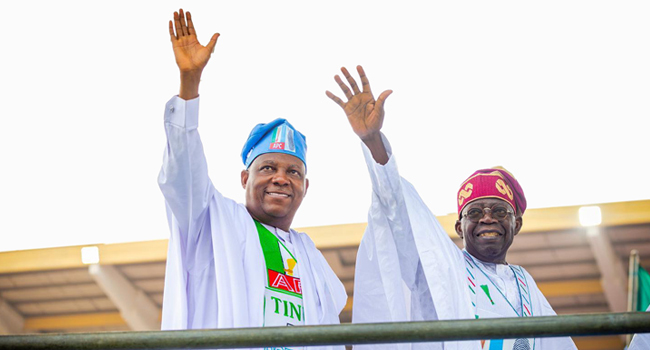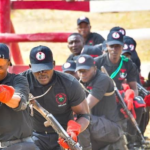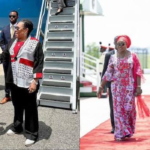President-elect Tinubu Inaugurated Amidst High Expectations: Nigerians Look to the Future with Hope
President-elect Asiwaju Bola Tinubu is set to be inaugurated as Nigeria’s 16th President today, amid high expectations from Nigerians who are demanding swift action in crucial sectors such as the economy, security, and fuel subsidy. Despite ongoing challenges to his victory by opponents Atiku Abubakar and Peter Obi in the Presidential Election Petition Court, Tinubu will assume office in a grand ceremony at Eagle Square, Abuja. The inauguration will be witnessed by over 300 guests and broadcast live to millions of Nigerians both at home and abroad.In anticipation of the inauguration, security measures have been intensified in the Federal Capital Territory, with the deployment of military personnel, police officers, undercover operatives, and counter-terrorism units at strategic locations and public facilities, including hotels accommodating invited guests. Aerial surveillance of the FCT is also being conducted by the military and police helicopters.Foreign diplomats, representatives of foreign governments, and heads of international organizations have started arriving in Abuja ahead of the power transition. The international community’s presence underscores the significance of the event.Various economic organizations, including the Nigeria Employers’ Consultative Association (NECA), the Nigerian Economic Summit Group (NESG), and the Manufacturers Association of Nigeria (MAN), have urged the incoming president to prioritize key economic issues within his first 100 days in office. They emphasize the need to tackle inflation, stabilize the exchange rate, and address fuel subsidies. NECA’s Director-General, Mr. Wale Oyerinde, stressed the importance of assembling an economic team and developing a blueprint for reviving refineries and dealing with revenue leakages, including oil theft.Dr. Ikenna Nwaosu, a facilitator with the NESG, highlighted the need for Tinubu to unite Nigerians and address pressing economic concerns, such as inflation, exchange rates, and oil subsidies. He emphasized the urgency of these issues within the first six months of his presidency.The Manufacturers Association of Nigeria (MAN) called for specific deliverables to be accomplished within Tinubu’s first 100 days in office, including prioritizing foreign exchange allocation to the productive sector, admitting qualified applicant companies into the Eligible Customer Scheme for power access, and ensuring the smooth functioning of the electronic call-up system at ports. MAN also urged the removal of fuel subsidies and the implementation of a special policy initiative to revive closed and distressed industries, particularly in the North-East region.The Lagos Chamber of Commerce and Industry (LCCI) emphasized the need for the incoming government to review fiscal policies, address administrative inefficiencies, and tackle infrastructural deficits. They called for sustained interventions in sectors like agriculture, manufacturing, and export to boost foreign exchange earnings. The LCCI also urged the government to handle subsidy removal with economic consciousness and prioritize security for a conducive investment climate.The Trade Union Congress (TUC) presented its charter of demands to Tinubu, emphasizing the improvement of workers’ welfare and maintaining their stance on fuel subsidy removal. The TUC stressed the importance of enhancing salary structures and the standard of living for Nigerian workers.Outgoing President Muhammadu Buhari defended his regime’s policies, acknowledging that they caused temporary pain and suffering but yielded desired results for the country. He congratulated Tinubu on his victory, praising him as the best candidate and expressing confidence in his leadership to take Nigeria to greater heights.In his response, President-elect Tinubu reassured Nigerians of his commitment to meeting their expectations, acknowledging the challenges ahead but expressing his determination to fulfill his responsibilities without excuses.












